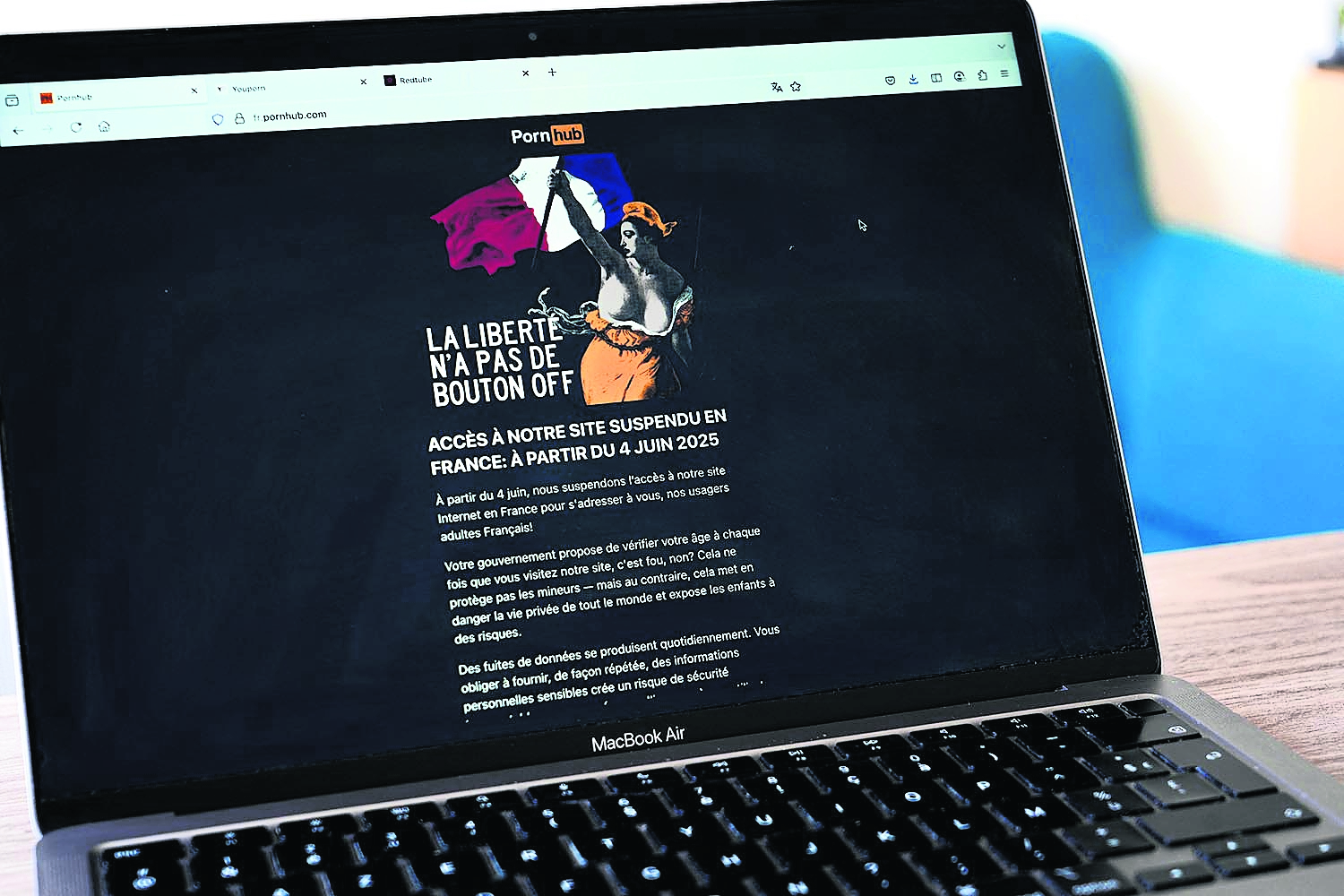French visitors to the pornography website Pornhub were greeted with an unusual sight last Wednesday: not a collection of X-rated videos but a mocked up image of Eugène Delacroix’s 1830 painting Liberty Leading the People. Next to the picture was a statement of defiance more fitting to the 21st century. “Freedom has no off button,” it read in English.
The second surprise was that there was no getting past Marianne to Pornhub’s usual fare. The site’s owner, Aylo, had preemptively blocked access to its porn empire, which also include the video-sharing platforms YouPorn, RedTube and Tube8.
Aylo, formerly MindGeek, was responding to a French law passed in 2024 mandating that pornography sites implement strict age-verification systems to prevent minors accessing adult content. More urgently, it was acting against a Friday deadline prescribed by the legislation. Since then all pornography users in France must verify their age using a credit card or government ID.
Before Aylo’s sites went dark in France, users could confirm their age by self-declaring that they were 18.
The French digital regulator Arcom has said that 2.3 million underage people access porn websites every month in the country, 12% of France’s total user base.
Aylo has already blocked access to its sites in 16 US states that have passed laws requiring stronger age verification, but a nationwide withdrawal is unprecedented. It is all the more remarkable because Pornhub, the most visited porn site in the world, counts France as its second biggest market behind the US.
When the site complied with a similar law in Louisiana in 2023, it says traffic dropped by 80%. What is not clear is how many of those “lost” users continued to use the site with VPNs, which allow individuals to mask their location. Figures shared by NordVPN with The Observer showed a usage rise of 370% in France between Wednesday and Friday.
Aylo said that the way countries had implemented age-verification rules was “ineffective, haphazard and dangerous”. It has pushed for users to be required to confirm their age at device level – through Apple or Android systems – rather than on their sites, but Iain Corby from the Age Verification Providers Association said such a process “simply does not exist” and is a delaying tactic. “It’s a game of pass the parcel between the biggest tech titans in the world,” Corby said.
Related articles:
Honza Cervenka, a revenge porn lawyer at McAllister Olivarius, compared Aylo’s demand to asking a car company at the point of purchase to “make sure no one with a licence ever drives that car”.
“It’s really just a big game of chicken” between tech firms, governments and regulators, Cervenka said. “We have rounds of these interim disagreements, refusals, pulling out of markets, and the tech companies know people are probably going to be able to access them anyway through a VPN.”
Newsletters
Choose the newsletters you want to receive
View more
For information about how The Observer protects your data, read our Privacy Policy
This cycle may come to the UK on 25 July, when platforms hosting pornography must meet new online child safety rules, including robust age checks. Corby, whose organisation helped develop the age-verification software that will be used in the UK, suspects Aylo will leave Brits in the dark too. If Westminster politicians are like France’s, they may not mind.
The French minister for gender equality, Aurore Bergé, celebrated the news that Aylo was pulling out of the country. “There will be less violent, degrading and humiliating content accessible to minors in France,” she wrote on X this week.
Conservative senator Marie Mercier, who brought the initial amendment seeking age-verification systems as part of a domestic violence bill in 2020, told The Observer that adults were free to view pornography but “not at the expense of our children’s safety”.
Asked to comment, Aylo pointed to its public statements – including its version of Delacroix’s oil painting.
Additional reporting by Kim Willsher in Paris
Photograph by Nicolas Guyonnet/Hans Lucas/AFP via Getty



